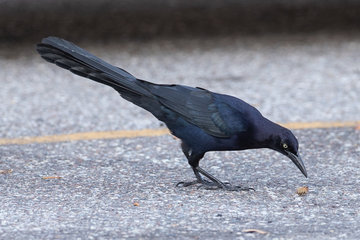Memory, forgetting, and social learning
Simulation model shows how groups can keep important information around within and across generations
One of the most actively debated questions about human and non-human culture is this: under what circumstances might we expect culture, in particular the ability to learn from one another, to be favoured by natural selection? Researchers at the Max Planck Institute for Evolutionary Anthropology in Leipzig, Germany, have developed a simulation model of the evolution of social learning. They showed that the interplay between learning, memory and forgetting broadens the conditions under which we expect to see social learning to evolve.

Social learning is typically thought to be most beneficial when the environments in which individuals live change quite slowly – they can safely learn tried and tested information from one another and it does not go out of date quickly. Innovating brand-new information, on the other hand, is thought to be useful in dynamic and rapidly changing environments.
Researchers Madeleine Ammar, Laurel Fogarty and Anne Kandler at the Max Planck Institute for Evolutionary Anthropology developed an agent-based simulation model of the evolution of social learning that incorporated the ways in which animals might remember, forget, and share crucial pieces of information throughout their lives. They asked: when do the agents want to learn from others? When is it best to forget or retain information that they have learned? When is it best to innovate?
Running the simulation, the researchers found that agents that remembered everything had a huge number of behaviours to choose from when deciding how to act. Because of this, they often chose to behave in the wrong way. On the other hand, agents who forgot less useful behaviors made better choices. This meant that forgetting was useful to the agents, and also that the behaviours social learners could observe and therefore learn were better, too.
Memory and forgetting shapes social learning
Memory and forgetting– acting together – shaped the information that individuals gathered in their lifetimes into collections of tools and behaviors that contained useful information, but forgot the rest. “This shaped corpus of cultural information allowed our individuals to learn from one another – use social learning – and thrive even when the environment they lived in changed often,” said Madeleine Ammar, first author of the study. “This might go some way towards explaining the widespread use of social learning among animals living in a huge range of environmental conditions.”
This has significance for the community of social learning researchers, too. It reverses one of the most robust and long-standing results in the field – namely that social learning evolves when environments are relatively stable, and innovation should dominate when they are not. Laurel Fogarty, co-senior author of the study, said, “The inclusion of memory and forgetting allows social learning to evolve under a broader range of environmental conditions than previously thought possible.”
“We showed that the interplay between learning, memory and forgetting broadens the conditions under which we expect to see social learning to evolve”, said co-senior author Anne Kandler. “In summary, memory, forgetting, and social learning may have influenced each other as they evolved.”












